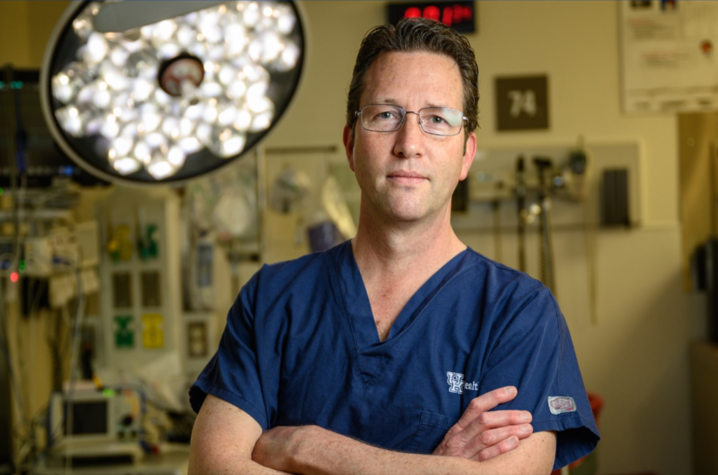Planning safety into your summertime activities
The University of Kentucky Public Relations and Strategic Communications Office provides a monthly health column available for use and reprint by Kentucky Living. This column is by Andrew Bernard, M.D., division chief of acute care surgery and trauma at UK HealthCare.
LEXINGTON, Ky. (May 20, 2024) — Warm weather is upon us which means longer days, time spent outdoors, kids will be out of school soon and people become more active.
The time between Memorial Day and Labor Day is commonly referred to as "trauma season" by health care providers. During this period, injuries often occur at a higher rate compared to other times of the year. These injuries can be severe and in some cases life-altering.
Although it is great for people to get out and have a good time, it’s important to be mindful of things like sun, helmet and water safety.
Sun safety
Sunshine and warm weather are one of the best parts of summertime, but the sun and heat can also lead to serious injuries. The sun is strongest between 10 a.m. and 2 p.m. Apply sunscreen with an SPF of at least 15 and reapply every two hours.
The heat can also cause dehydration. Drinking enough water is one of the best things to do to prevent heat illness. The Centers for Disease Control and Prevention recommends drinking one cup of water every 15-20 minutes. Drinking water in shorter intervals is more effective than drinking large amounts infrequently.
Cars can reach very high temperatures in the summer sun. Never leave your child alone in the car, even for a minute. This could lead to overheating and even death.
Water safety
Never enter a swimming pool headfirst unless the pool has a designated safe diving area. When swimming be mindful of your limitations, know your signs of fatigue and take a break when needed. Children should always be supervised in all pools or bodies of water.
When boating or swimming in lakes, everyone should have a life jacket. For children, life jackets should be mandatory at all times. Alcohol is one of the leading known factors in recreational boating deaths in the U.S. Whoever is in control of the boat should avoid alcohol and stay hydrated with water.
Distracted driving
Thousands of people die each year from motor vehicle crashes caused by distraction. Cell phones are the most common distraction but anything that takes the driver’s focus off the road for even one second can put lives at risk. Never text while driving and as a passenger, avoid distracting the driver.
Seatbelts and helmets
One of the safest choices drivers and passengers can make is buckling their seatbelt. As the driver, ensure that all passengers including kids are properly buckled and in appropriately sized and secured car seats or booster seats.
Adults and children should wear a helmet while on all-wheeled vehicles, including ATVs, motorcycles, bicycles and skateboards, or when horseback riding. Studies show that wearing helmets can reduce serious head injuries by up to 80%.
Firework safety
Although fireworks are fun and beautiful to watch, they can also cause injury. Wear eye protection. Never hold an exploding firework in your hand or allow young children to handle fireworks. Keep a bucket of water nearby to fully extinguish fireworks that don't go off or in case of fire.
Sparklers may seem safe for kids, but it’s important to remember they can still reach temperatures of 2,000 degrees and quickly ignite clothing.
Pedestrian safety
Pedestrian injuries are on the rise. When possible, use the sidewalk and walk facing the traffic. Use crosswalks to cross and avoid crossing or standing on the roadside while distracted by your phone.
UK HealthCare is the hospitals and clinics of the University of Kentucky. But it is so much more. It is more than 10,000 dedicated health care professionals committed to providing advanced subspecialty care for the most critically injured and ill patients from the Commonwealth and beyond. It also is the home of the state’s only National Cancer Institute (NCI)-designated Comprehensive Cancer Center, a Level IV Neonatal Intensive Care Unit that cares for the tiniest and sickest newborns and the region’s only Level 1 trauma center.
As an academic research institution, we are continuously pursuing the next generation of cures, treatments, protocols and policies. Our discoveries have the potential to change what’s medically possible within our lifetimes. Our educators and thought leaders are transforming the health care landscape as our six health professions colleges teach the next generation of doctors, nurses, pharmacists and other health care professionals, spreading the highest standards of care. UK HealthCare is the power of advanced medicine committed to creating a healthier Kentucky, now and for generations to come.






